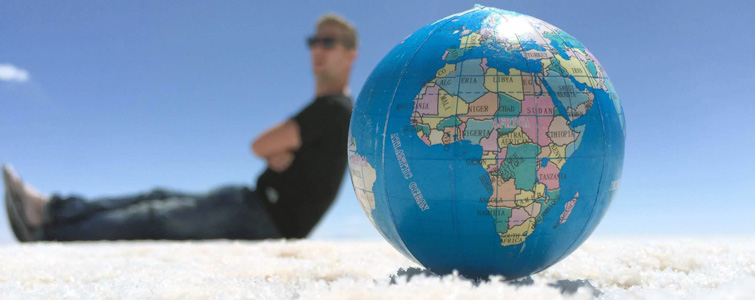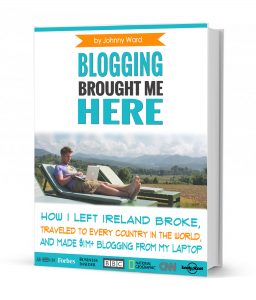iGaming Laws and Legal Requirements in Canada
Each province in Canada follows a unique territorial legal framework. Online gambling activities are regulated locally, using the Criminal Code of Canada as a foundation. The administrative divisions are granted autonomy to manage iGaming products within their territories. That has resulted in diverse legal settings with distinct rules for operators and players.

Main Provinces and Their iGaming Regulations
Countries usually have a single national framework governing gambling. Canada leaves the responsibility to each province and territory, diversifying the management process significantly. Here are some useful specifics for the main regions.
Ontario
The province has been the leader in Canada’s gambling sector, with a fully regulated online market since 2022. That’s why there are many legal online casinos in Ontario. The AGCO (Alcohol and Gaming Commission of Ontario) and iGaming Ontario control the industry, ensuring compliance with local laws for Canadian and international operators. All players must be over 19 years of age to visit Ontario’s leading safe online casinos and play.
British Columbia
The BC Lottery Corporation (BCLC) regulates online gambling in British Columbia through its PlayNow.com platform. This is the only legal local gambling option for the province. The lawmakers have not created a licensing structure for foreign gaming platforms. Players over 19 can participate in online gambling.
Manitoba
The organization responsible for regulating gambling in the province is the Manitoba Liquor and Lotteries (MBLL). All profits generated by the casinos of Winnipeg, which are operated by the MLBB, go to the province’s general revenue, supporting various projects and institutions, mainly in health care and education. The minimum legal gambling age is 18 years old. Residents also have access to regulated offshore casinos.
Quebec
Loto Québec, a government-run gambling commission, monitors gaming activities in the province. Espace Jeux is the province’s only official regulated gaming website. Still, there is a rich list of offshore platforms legally operating in the region for players over 18 years old. The commission heavily focuses on responsible gambling initiatives.
Saskatchewan
The legal body that regulates land-based real money gambling establishments is the Saskatchewan Indian Gaming Authority (SIGA). As SIGA’s focus is solely on brick-and-mortar casinos, players who want to play online can visit offshore casino sites as long as they are regulated by the MGA (Malta Gaming Authority) or another reputable organization. The minimum gambling age is 19.
Alberta
Before 2020, Alberta was one of just two provinces without a licensed gambling website. Now, it offers limited iGaming options through its regulated PlayAlberta.ca platform, governed by the Alberta Gaming, Liquor, and Cannabis Commission (AGLC). The province is gradually expanding its online gaming offerings with sites based in other countries but remains tightly regulated with a legal gambling age of 18.
Atlantic Provinces: Collective Approach to Online Gambling
Newfoundland and Labrador, Nova Scotia, New Brunswick, and Prince Edward Island have adopted a collective approach by working with the ALC (Atlantic Lottery Corporation) to manage online gaming. Recently, Nova Scotia founded its casino website, strengthening the shared approach in the region.
This collaboration allows the provinces to communicate and provide a standardized, secure gaming environment. That alliance is a statement that regional partnerships in overseeing and controlling the iGaming sector are effective. Players can enjoy foreign platforms not licensed by Canadian authorities but must consider the site’s reputation and presence of active international licences.
The Northern Territories Approach
Yukon, Northwest Territories, and Nunavut have a smaller population and, therefore, rely on some unique regulatory frameworks. Here you will not find extensive government-regulated gaming platforms like some of the southern provinces.
The focus is on a smaller scale, including community-based gambling activities. Online options are primarily available via national platforms, reflecting the distinct preferences of the locals. Moreover, the region emphasizes community values in its gambling practices.
Taxation and Financial Regulations
The Canada Revenue Agency (CRA) oversees all tax-related aspects of gambling in the country. Gaming earnings in Canada are not considered taxable income unless the player is a professional gambler. Therefore, regular players’ winnings from online gaming are tax-free. Operators, on the other hand, are subject to regulatory fees and taxes.
Overall, the gambling market follows a revenue-sharing model, where licensed operators are required to convey a portion of their earnings to the province. Government-operated platforms must follow financial regulations that ensure transparency in the management of funds. That supports provincial programs and helps maintain fair competition within the market.
Local Banks and Online Gambling Restrictions
It is advisable to thoroughly check if the bank you are using supports online casino transactions. As per the latest research, Canadians can deposit and withdraw in local currency. There are no regulations forbidding transactions in Canadian dollars. Still, only some local banks will process deposits directly to international gaming websites. Here are the four leading banks in Canada and their online gambling approach:
- Bank of Nova Scotia (Scotiabank): It will only process transactions to online gambling sites owned and operated by provincial or territorial governments or agencies. These include EspaceJeux.com, PlayOLG.com, and PlayNow.com. The bank will not allow its account to be used for funding accounts at offshore gaming platforms.
- Bank of Montreal (BMO): The oldest financial institution in Canada is liberal when it comes to gaming at international gambling sites. It even has a special way of treating transactions, calling them cash-like. Many players prefer this bank, as it works with offshore platforms and makes the process easy and hassle-free.
- Canadian Imperial Bank of Commerce (CIBC): In 2022, CIBC updated its T&Cs to include gambling-related transactions to be valid. The financial institution is renowned for its magnitude and long history. In some cases, the bank could block online gambling-associated transactions, but they often go through.
- Royal Bank of Canada (RBC): It has a strong reputation as the leader across the provinces, with the greatest coverage on a national level. It supports online gaming transactions. Yet, the related bank card terms explicitly state that it reserves the right to decline deposits and withdrawals related to offshore gambling websites.
Summary
Players have the freedom to choose between government-run casinos and foreign operators. The new Canadian regulations and laws predict a bright future and a well-developed gambling industry. That could benefit the economy and society in general.
Remember, never travel without travel insurance! And never overpay for travel insurance!
I use HeyMondo. You get INSTANT quotes. Super cheap, they actually pay out, AND they cover almost everywhere, where most insurance companies don't (even places like Central African Republic etc!). You can sign-up here. PS You even get 5% off if you use MY LINK! You can even sign up if you're already overseas and traveling, pretty cool.
Also, if you want to start a blog...I CAN HELP YOU!
Also, if you want to start a blog, and start to change your life, I'd love to help you! Email me on johnny@onestep4ward.com. In the meantime, check out my super easy blog post on how to start a travel blog in under 30 minutes, here! And if you just want to get cracking, use BlueHost at a discount, through me.
Also, (if you're like me, and awful with tech-stuff) email me and my team can get a blog up and running for you, designed and everything, for $699 - email johnny@onestep4ward.com to get started.
Do you work remotely? Are you a digital nomad/blogger etc? You need to be insured too.
I use SafetyWing for my digital nomad insurance. It covers me while I live overseas. It's just $10 a week, and it's amazing! No upfront fees, you just pay week by week, and you can sign up just for a week if you want, then switch it off and on whenever. You can read my review here, and you can sign-up here!













 As you know, blogging changed my life. I left Ireland broke, with no plan, with just a one-way ticket to Thailand
and no money. Since then, I started a blog, then a digital media company, I've made
more than $1,500,000 USD, bought 4 properties and visited (almost) every country in the world. And I did it all from my laptop as I
travel the world and live my dream. I talk about how I did it, and how you can do it too, in my COMPLETELY FREE
Ebook, all 20,000
words or so. Just finish the process by putting in your email below and I'll mail it right out to you immediately. No spam ever too, I promise!
As you know, blogging changed my life. I left Ireland broke, with no plan, with just a one-way ticket to Thailand
and no money. Since then, I started a blog, then a digital media company, I've made
more than $1,500,000 USD, bought 4 properties and visited (almost) every country in the world. And I did it all from my laptop as I
travel the world and live my dream. I talk about how I did it, and how you can do it too, in my COMPLETELY FREE
Ebook, all 20,000
words or so. Just finish the process by putting in your email below and I'll mail it right out to you immediately. No spam ever too, I promise!
